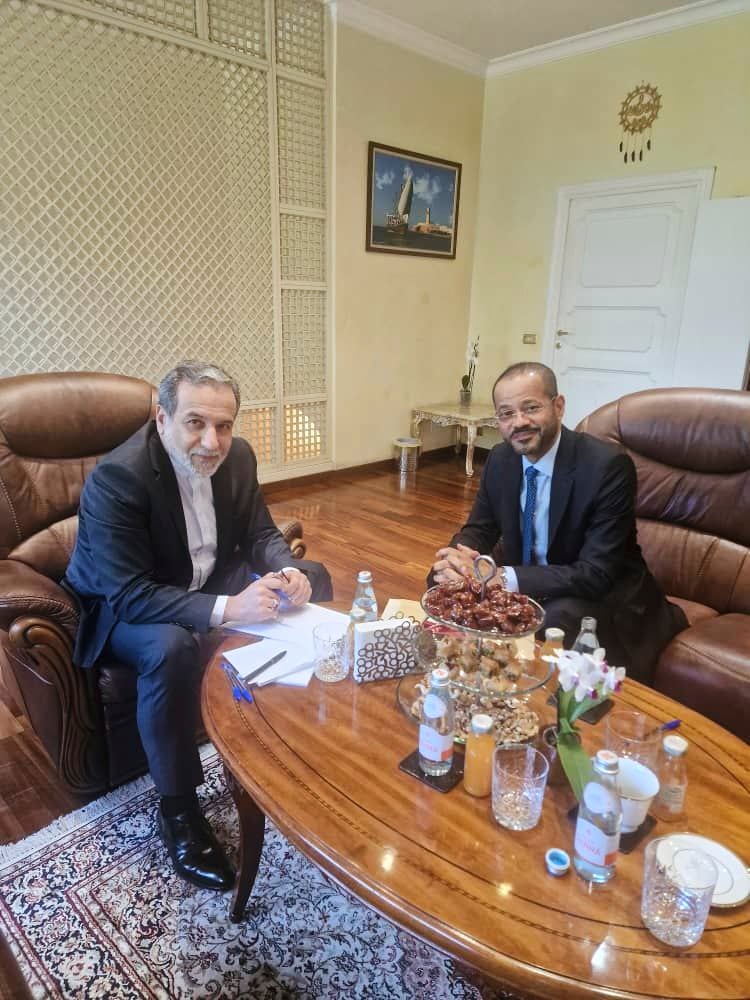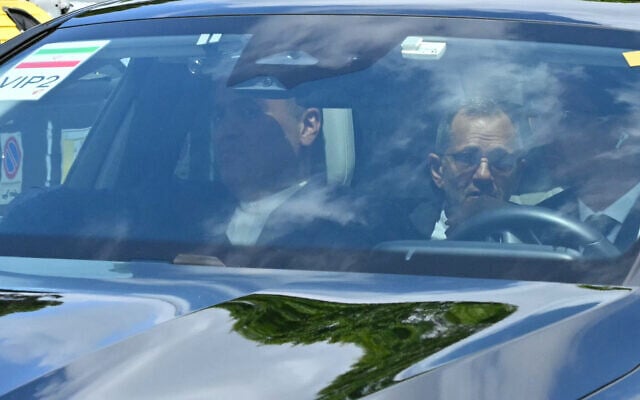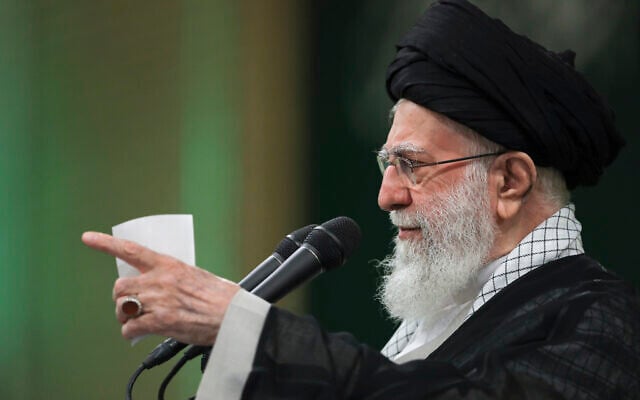



Iranian Foreign Minister Abbas Araghchi said Friday that Tehran’s discussions with the United States over its nuclear program were “complicated,” as the fifth round of talks concluded in Rome.
“The negotiations are too complicated to be resolved in two or three meetings,” said Araghchi, who leads the Iranian negotiating team in the talks mediated by Oman.
Araghchi said there was potential for progress in nuclear negotiations after Oman made several proposals.
Oman’s Foreign Minister Badr al-Busaidi said “some but not conclusive progress” was made. “We hope to clarify the remaining issues in the coming days to allow us to proceed toward the common goal of reaching a sustainable and honorable agreement.”
The talks, which began in April, are the highest-level contact between the foes since the United States quit a landmark 2015 nuclear accord during President Donald Trump’s first term.
Since returning to office, Trump has revived his “maximum pressure” campaign on Iran, backing talks but warning of military action if diplomacy fails.
Iran wants a new deal that would ease the sanctions, which have battered its economy.
The fourth round of talks, in the Omani capital Muscat, ended with a public spat over enrichment. Witkoff said Washington “could not authorize even one percent” enrichment — a position Tehran called a red line, citing its rights under the nuclear Non-Proliferation Treaty.
Ahead of Friday’s talks, Araghchi said “fundamental differences” remained with the United States, while adding that Tehran was open to its nuclear sites undergoing more inspections.
“We will not have an agreement at all” if the United States wants to prevent Iran from enriching uranium, he said.
The talks came ahead of a June meeting of the UN nuclear watchdog, the Vienna-based International Atomic Energy Agency (IAEA), and the October expiry of the 2015 accord.
The deal, known as the Joint Comprehensive Plan of Action, aimed to allay Western suspicions that Iran was seeking a nuclear weapons capability, an ambition that Tehran has denied, while enriching uranium to levels that have no civilian application.
In return for curbs on its nuclear program, Iran had received relief from international sanctions. But the accord was torpedoed in 2018 when Trump unilaterally withdrew the United States and reimposed sanctions. Iran responded by ramping up its nuclear activities.
It is now enriching uranium to 60 percent — far above the deal’s 3.67 percent cap but below, though close to, the 90 percent level needed for a nuclear warhead.
Analysts in Tehran said Iran was unlikely to back down.
“It’s quite simple; if the US expects Iran to halt nuclear enrichment, then there can’t be a deal,” said Mohammad Marandi, a political scientist who was once an adviser on the nuclear issue.
The Atomic Energy Organization of Iran says the country’s nuclear industry employs 17,000 people, similar to other countries where uranium is enriched for civilian use.
“The Netherlands, Belgium, South Korea, Brazil and Japan enrich without possessing nuclear weapons,” its spokesman Behrouz Kamalvandi said.
Iran’s enmity with Israel, whose main backer is the United States, has been a constant backdrop to the talks.
In a letter to the United Nations, Araghchi wrote: “We believe that in the event of any attack on the nuclear facilities of the Islamic Republic of Iran by the Zionist regime, the US government will also be involved and bear legal responsibility.”
The warning came after CNN, citing unnamed US officials, reported Israel was making preparations to carry out such a strike.
The White House said Trump had a “productive discussion” with Israeli Prime Minister Benjamin Netanyahu on Thursday about Iran and the fatal shooting of two Israeli embassy staff in Washington.
Friday’s talks took place before an IAEA Board of Governors meeting in Vienna in June, during which Iran’s nuclear activities will be reviewed.
The 2015 deal provides for the possibility of UN sanctions being reimposed through a mechanism called “snapback” if Iran fails to fulfil its commitments.
The agreement’s three European parties — Britain, France and Germany — have warned they will trigger the mechanism if the continent’s security is threatened.
Araghchi said such a move would have “consequences — not only the end of Europe’s role in the agreement, but also an escalation of tensions that could become irreversible.”
Mossad chief David Barnea and Strategic Affairs Minister Ron Dermer met US negotiator Steve Witkoff in Rome on Friday on the talks’ sidelines.
Trump has repeatedly threatened to unleash airstrikes targeting Iran’s program if a deal isn’t reached. Iranian officials increasingly warn they could pursue a nuclear weapon if the nation is threatened.
“Iran almost certainly is not producing nuclear weapons, but Iran has undertaken activities in recent years that better position it to produce them, if it chooses to do so,” a new report from the US Defense Intelligence Agency said.
“These actions reduce the time required to produce sufficient weapons-grade uranium for a first nuclear device to probably less than one week.”
However, it likely still would take Iran months to make a working bomb, experts say.
Asked about the negotiations, US State Department spokesperson Tammy Bruce said “we believe that we are going to succeed” in the talks and in Washington’s push for no enrichment.
“The Iranians are at that table, so they also understand what our position is, and they continue to go,” Bruce said Thursday.
One idea floated so far that might allow Iran to stop enrichment within the country but maintain a supply of uranium could be a consortium in the Mideast backed by regional countries and the US.
There are also multiple countries offering low-enriched uranium that can be used for peaceful purposes by countries.
However, Iran’s Foreign Ministry has maintained that enrichment must continue within the country’s borders, and a similar fuel-swap proposal failed to gain traction in negotiations in 2010.



